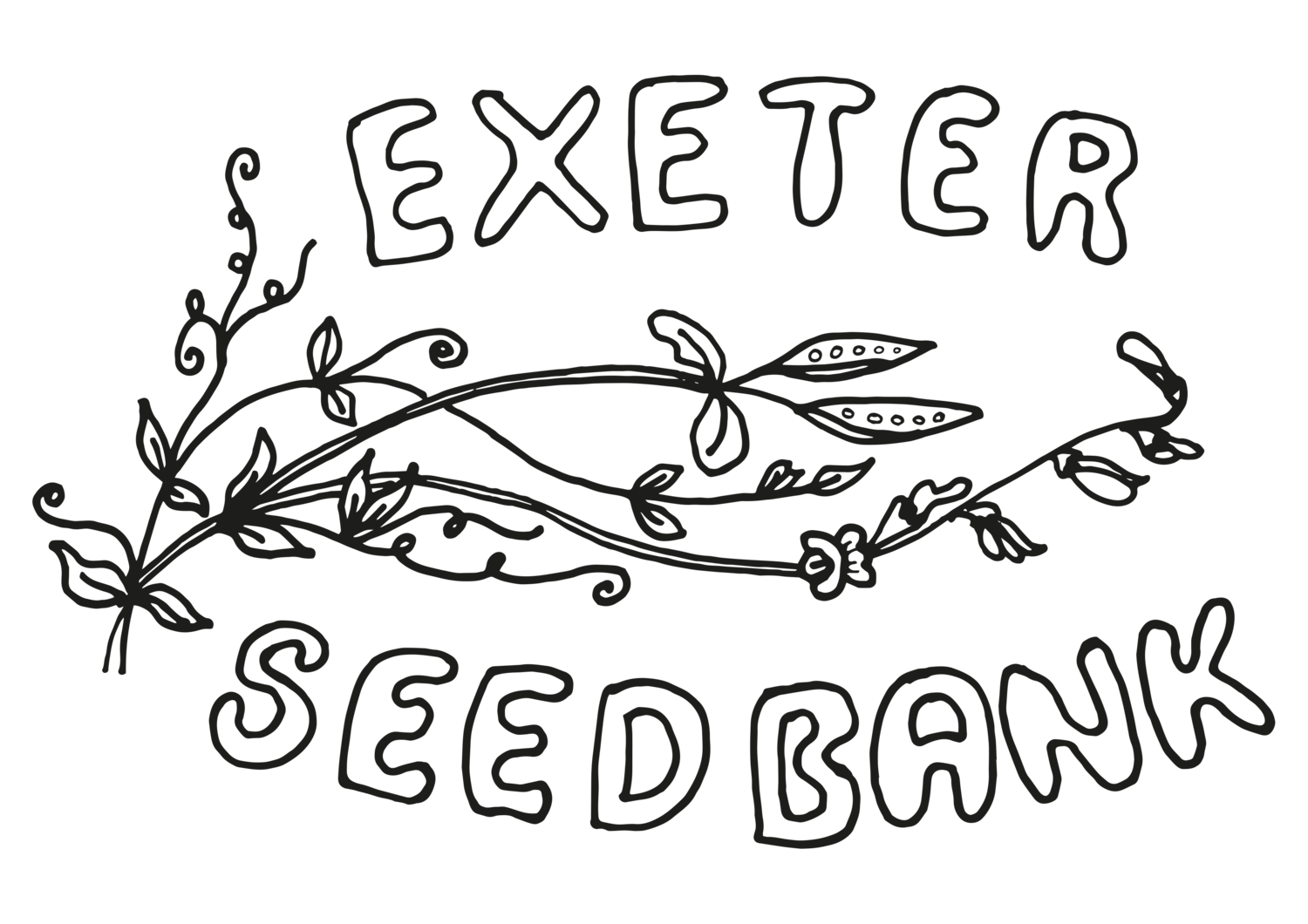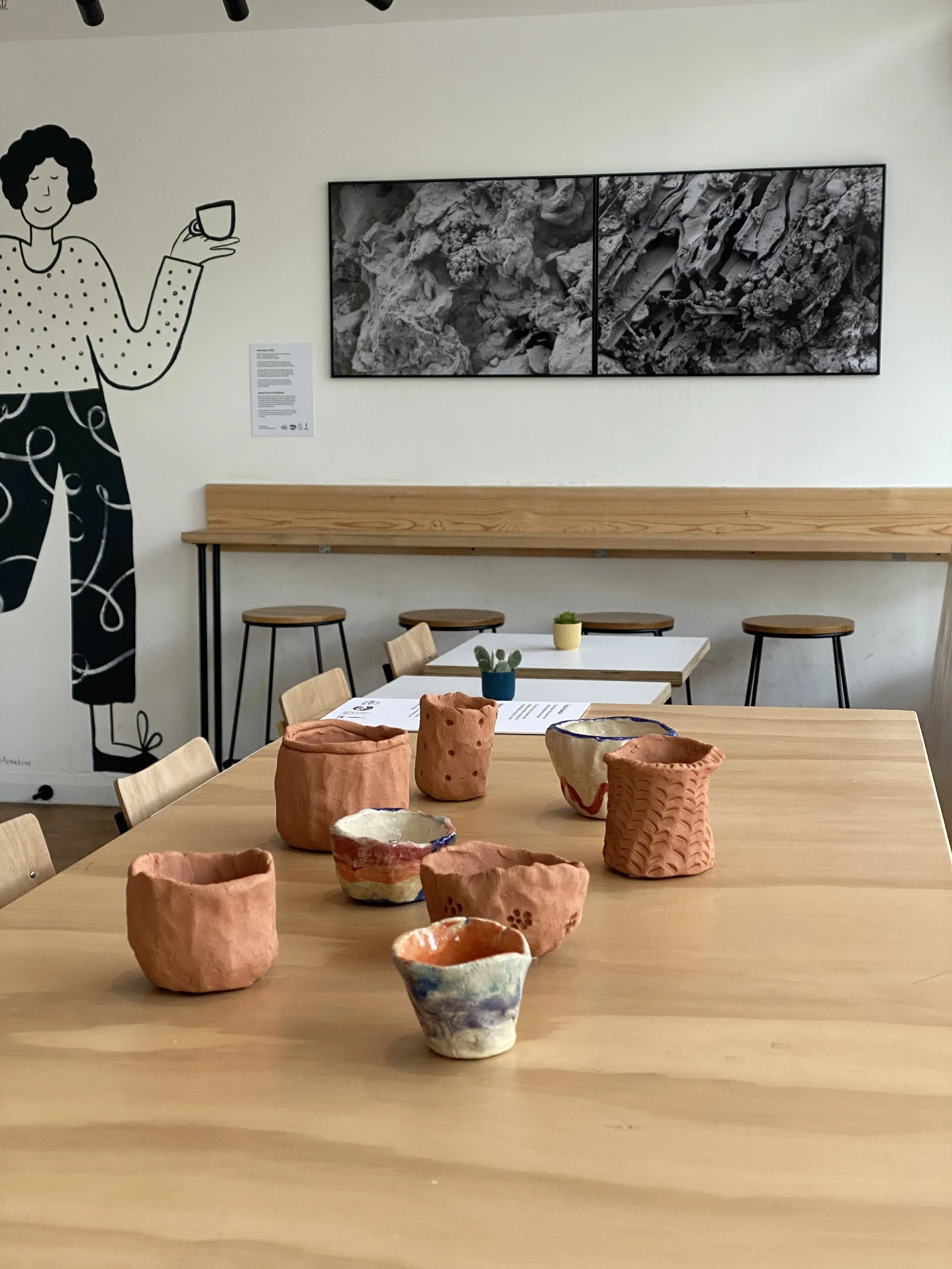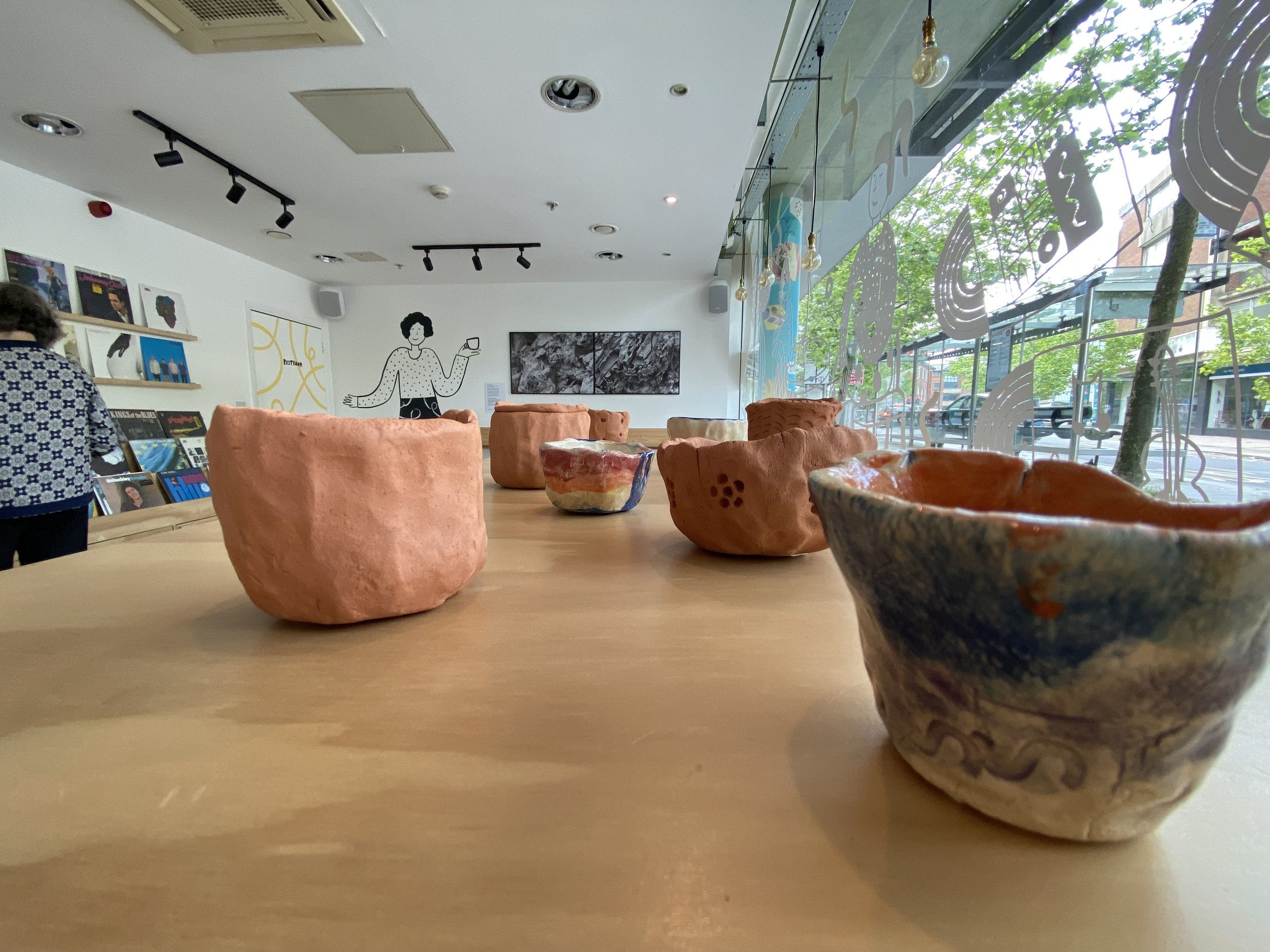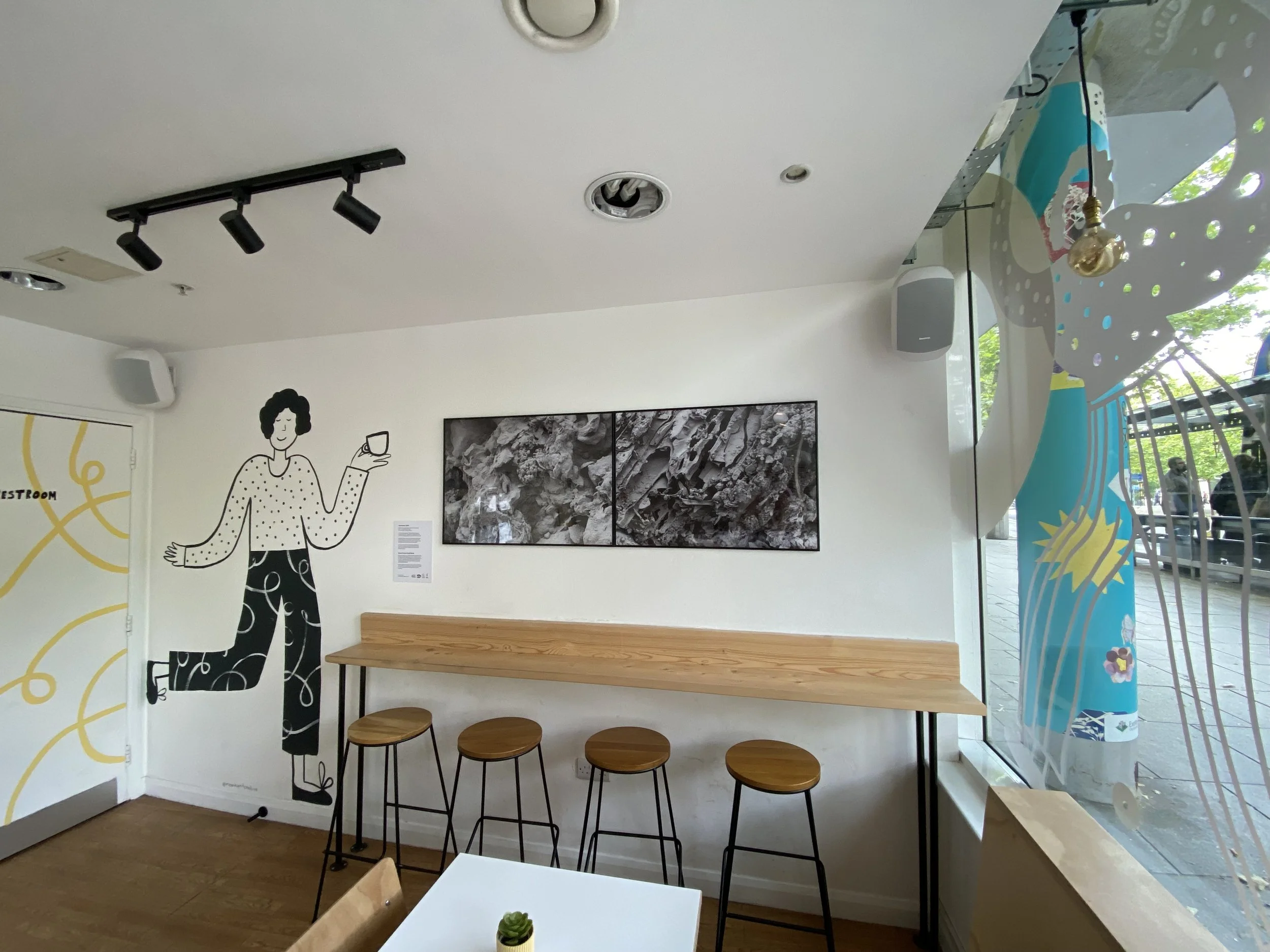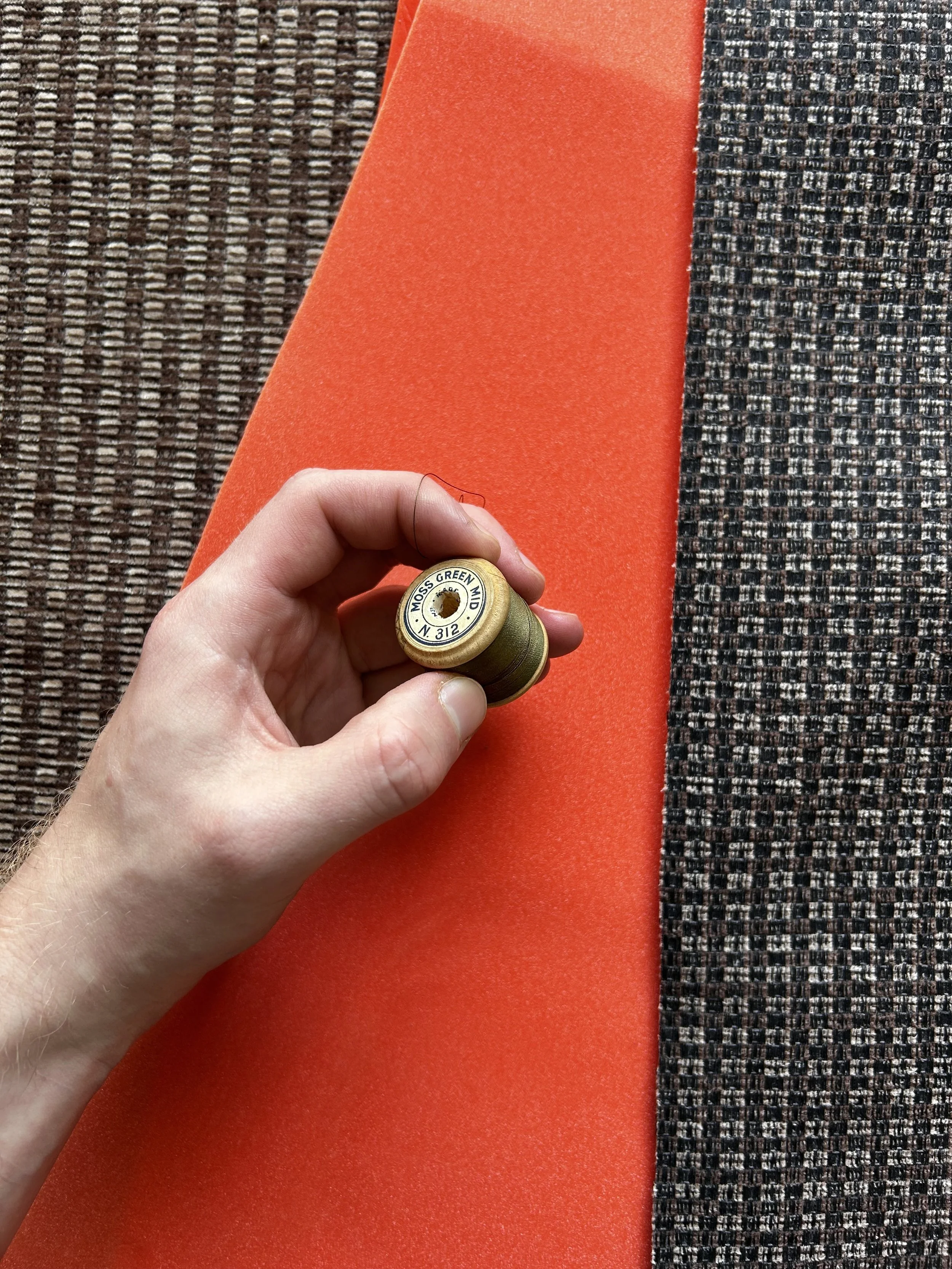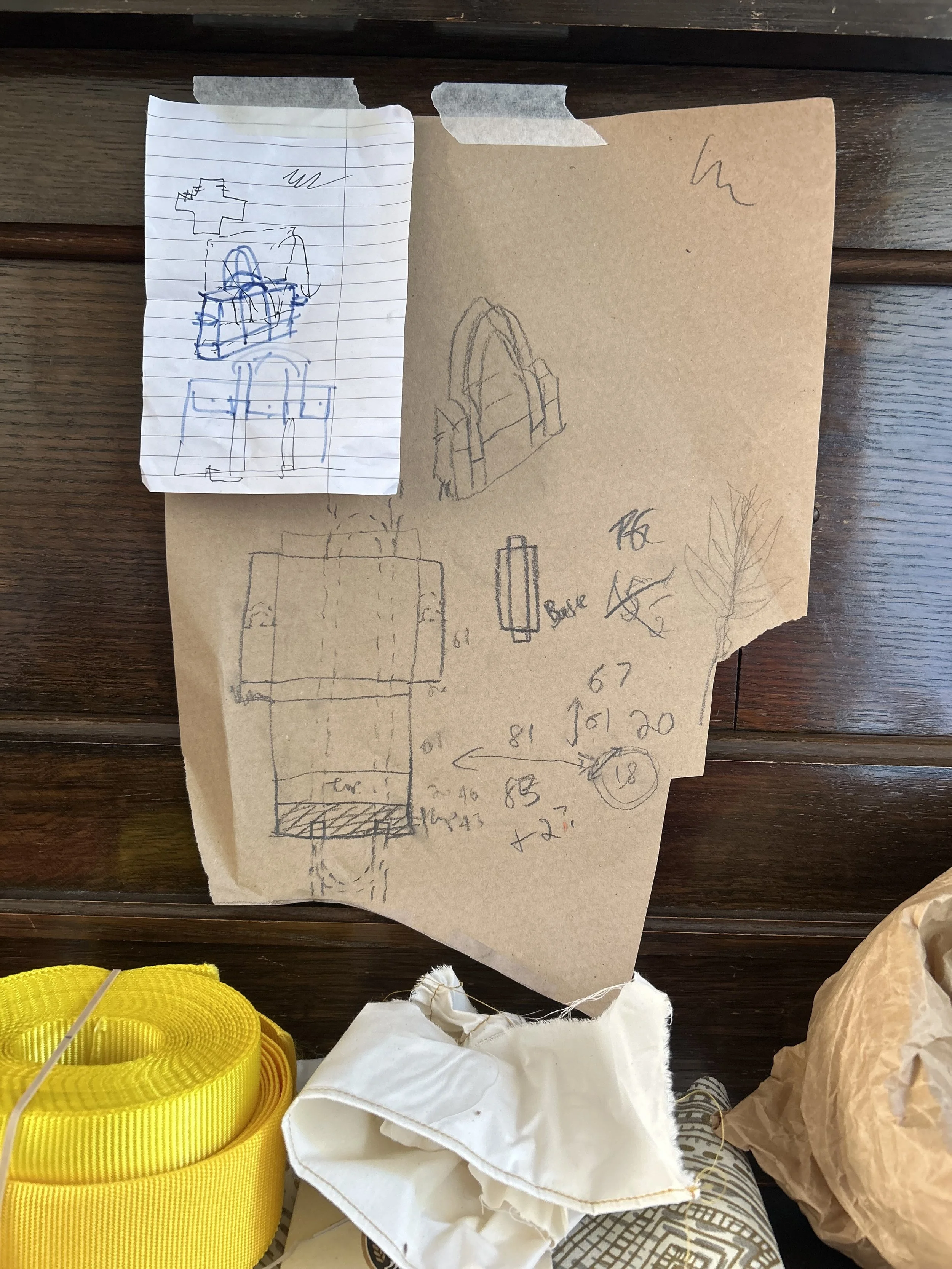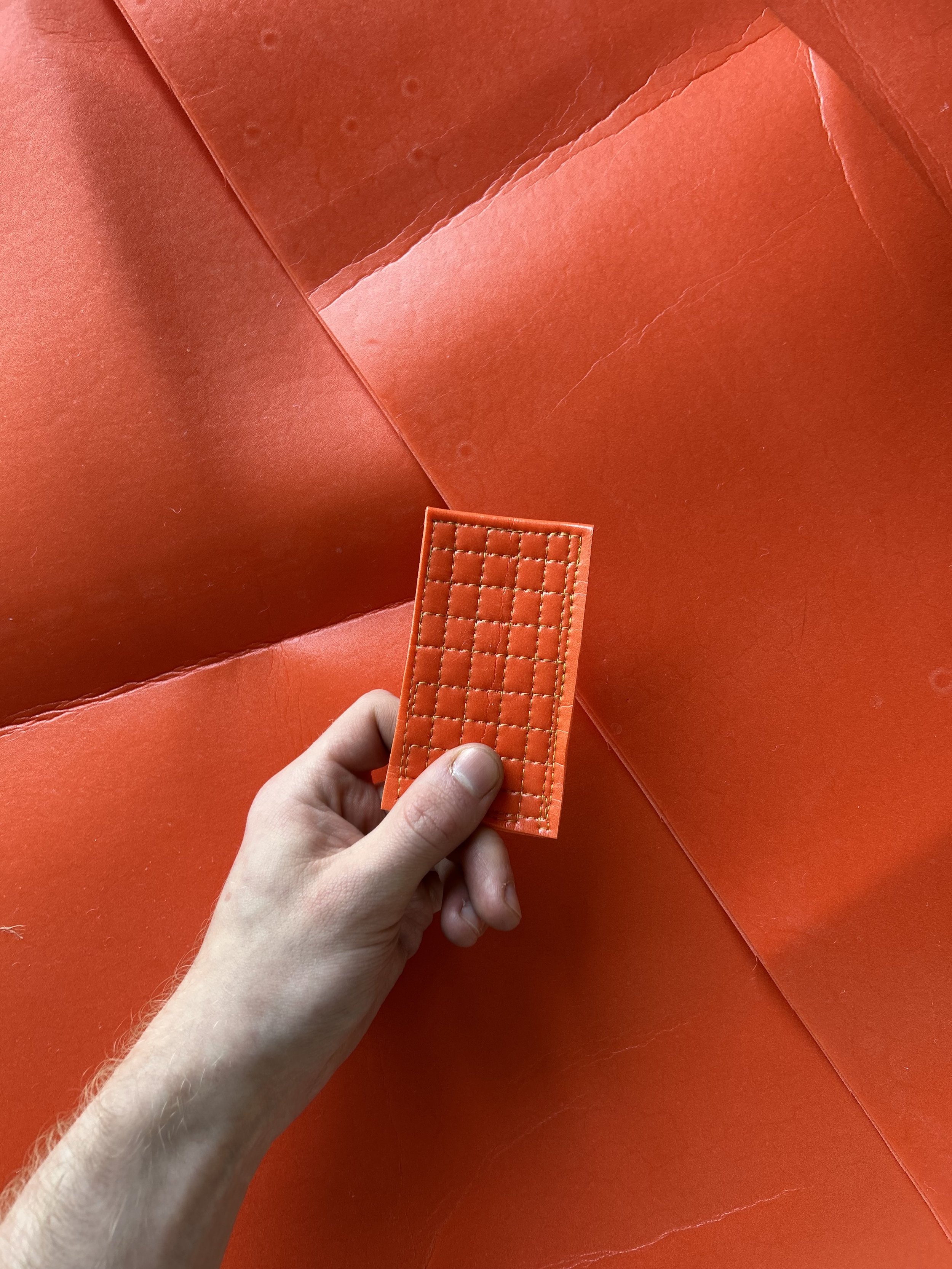End of Summer update
It’s been a busy spring and summer for Exeter Seed Bank, with projects and plans flying off in every direction.
In the run up to our Annual Seed Swap, we held workshops to develop our Twinning Project with the Palestine Local Seed Bank. The twinning project was initiated through the Landworkers’ Alliance (LWA), who were looking for ways to raise awareness of the plight of Palestinian farmers and the right to seed sovereignty in the Occupied Territories. This has been an entirely voluntary activity by ESB but one we felt as an essential duty to participate in as Palestine endures genocide and forced starvation in Gaza and settler violence and unlawful detention in the West Bank.
Our 2 workshops in March which included a shared meal, were held in St Sidwell Community Centre with participation from our local Palestinian community and friends. As a form of craftivism - whereby we engage in a craft to draw attention and care for others in a quiet way - participants made clay pinch pots and shared stories of Palestine. The pots were then fired and decorated at another session with more participants. Finally, the finished pots were offered at the Seed Swap with herb seed to start a seedling in exchange for a donation to the Palestine Local Seed Bank. We selected the herb seeds to give away specifically beloved in Palestinian culinary culture.
As part of Art Week Exeter (AWE) in June, we exhibited at two locations, one at 12 Bar Music and Social, which included the clay pot making workshop, and the other at Exeter’s Underground Passage. We exhibited microscopy images of soil from Devon and Palestine, which were taken at the University of Exeter Bioimaging Suite. Exhibited alongside were the first clay pinch pots made in workshops in March. At the 12 Bar Music and Social drop-in workshop, we continued making new pinch pots, talked about the state of agriculture in Palestine, gave away finished fired pots, and shared a delicious dip of Palestinian olive oil and za’atar with pita bread.
Also in June, we were invited by Devon Development Education at the Global Centre to host a workshop and presentation of our Twinning Project, with people travelling from Bristol and Totnes to join the conversation. We made pinch pots and heard via live stream from our friends at the Palestine Local Seed Bank about their commitment to seed and food sovereignty whilst working under precarious conditions.*
We also had our Kiosk Carry Case Commission, funded by Creative Arc, with artist and seamster Oliver Kirkham producing three fantastic carry cases made from post-industrial waste sourced via Exeter Scrapstore. The carry cases will enable us to more easily transport and use our Cardboard Kiosk Tree and exhibition panels for events. We were also able to commission Men in Sheds Okehampton to make a DIY seed cleaner, or 'winnowing' machine, based on the open-source plans from Real Seeds.
Video artist Jakub Dragun came from Vienna to document our work and explore the many community gardens and initiatives in Exeter. His film will document how seeds are slowly shaping, reconnecting and transforming parts of our local food system and building community. A notable thanks to Marta from Sidwell Community Bakehouse, for sharing their work with the South West Grain Network which provides the heritage wheat flour for the bread baked, eaten and enjoyed in Exeter.
Our Exeter Broad Bean Project, which was initiated through funding by Creative Arc and involving over 25 growers, is collectively shepherding a "flock" of several types of broad beans grown together from plant to seed. The project follows the principles of Adaptive Agriculture and is inspired by the words and work of American Landrace gardener, Joseph Lofthouse. We are also grateful for the additional support by our friend Dan Fox of Two Acre Farm, a market gardener based in Somerset. This first ‘flock’ year, which will evolve into a ‘landrace’ over time, has had a positive start with seed gathered from participants from all over Exeter. The seeds harvested from 2025 will be mixed again and redistributed in November for the 2026 growing season. The Exeter Broad Bean Project is a long-term (4-5+ year) project which we hope to develop further through additional funding. As part of the project, we are starting to collect local and global recipes which we hope to turn into a booklet to celebrate this wonderful vegetable and mainstay of the ‘hungry gap’ months.
While our primary focus is on the craft of seed saving and biodiversity, we cannot ignore soil. The relationship between the two is intrinsic and holds huge potential and importance in the face of climate change. With funding from the University of Exeter and the FUTURES programme, Exeter Seed Bank have been developing soil testing kits for community growers and allotmenteers to better understand the health of their soils as its own ecosystem; offering environmentally sustainable methods for improving soil carbon sequestration and nitrogen fixing. This project has been eye-opening in revealing the often-poor quality of our urban growing environments, and how land offered to communities frequently have complex histories of use and subsequent contamination. Yet, the potential to drive biodiversity, food production and carbon sequestration is immense. Much amazing work is already happening, quietly, across the city, healing the earth. We will be sharing the new soil kits and some research 11-12 October at Exeter Phoenix as part of FUTURES Festival 2025.
Exeter Seed Bank was also awarded funding to develop our seed bank allotment plot. Support from the National Garden Scheme will allow us to erect a large shed to increase our capacity for drying, storing and processing seeds; and will enable us to run workshops and artist residencies on the site in the future. The allotment has seen an additional improvement over the summer with the erection of a second-hand greenhouse for growing cucumber, melon and tomato seed crops.
While these many positive and important projects were taking place, in the background our friends at the Palestine Local Seed Bank faced major disruption to their vital work.
* On 31 July, the Israeli Occupying Forces destroyed the main seed multiplication unit of the Palestine Local Seed Bank without warning. This destruction directly impacts the Seed Bank’s core mission of supporting farmers and protecting Palestinian culture through seed saving. The dedicated people of the Palestine Local Seed Bank, and the wider UAWC (Union of Agricultural Work Committees), have become our friends. We released a statement of solidarity and have begun raising donations and funds to support rebuilding efforts.
Our friends at Devon Development Education and DJ Somatic, who organises Dance Against Racism (DAR), have also responded and dedicated their next event on 4 October at Exeter Library, to raising funds for the Palestine Local Seed Bank. We are grateful for their support.
